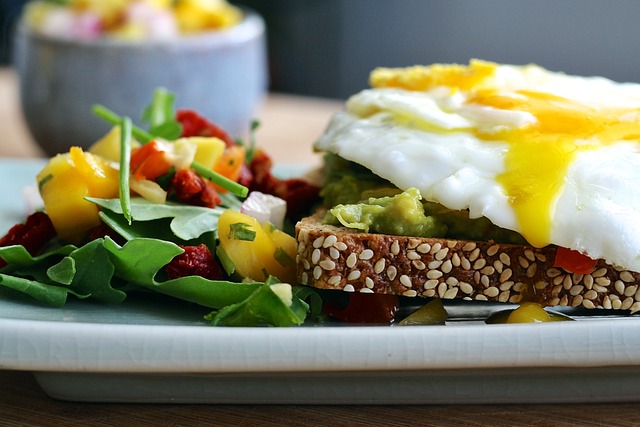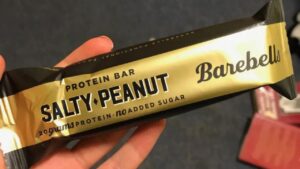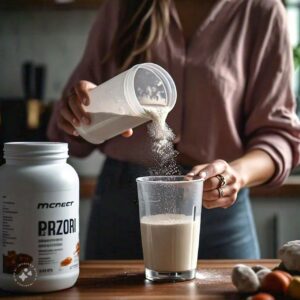In the world of convenient, on-the-go nutrition, protein bars have become a staple for athletes, fitness enthusiasts, and busy professionals alike. Protein bar nutrition facts, in particular, have gained widespread popularity for their balanced blend of taste and nutrition. In this comprehensive review, we’ll examine the nutrition facts of pure protein bars, assessing their ingredients, nutritional benefits, and overall effectiveness as a dietary supplement.
What are pure protein bars?
Nutrient-rich protein bars are designed to provide a high-protein, low-sugar snack option that supports muscle recovery, growth, and overall nutrition. Each bar aims to offer a substantial amount of protein while keeping carbs and fats in check. They come in various flavors, catering to different taste preferences.
Nutritional Profile Breakdown
To understand the value of protein bar nutrition facts, it’s crucial to examine their nutritional profile in detail. Here’s a breakdown of the typical nutrition facts for a standard Pure Protein Bar:
Macronutrients
- Calories: Around 200–210 calories per bar.
- Protein: Approximately 20 grams per bar.
- Carbohydrates: Roughly 17–19 grams per bar, including 2-3 grams of sugar and 6–8 grams of sugar alcohols.
- Fat: About 5–6 grams per bar, with 3–4 grams of saturated fat.
Micronutrients
- Fiber: 1-2 grams per bar.
- Calcium: Around 10% of the daily value (DV).
- Iron: Approximately 10% of the DV.
- Sodium: Around 150–200 milligrams per bar.
Ingredients Analysis
Pure Protein Bars are formulated with a blend of various ingredients aimed at delivering high protein content while ensuring palatability. Key ingredients typically include:
- Whey Protein Isolate: A high-quality protein source that is easily digestible and rapidly absorbed.
- Milk Protein Isolate: Provides a blend of casein and whey, offering a sustained release of amino acids.
- Soy Protein Isolate: An additional protein source that is plant-based, catering to those with dietary restrictions.
- Sugar Alcohols (Maltitol, Sorbitol): Used to provide sweetness without adding excessive sugar.
- Fiber (Chicory Root): Helps with digestion and adds to the bar’s texture.
- Flavorings and Sweeteners: This includes artificial and natural flavors, sucralose, and sometimes stevia for taste.
Protein Quality and Digestibility
The primary selling point of Pure Protein Bars is their high protein content, which is mainly derived from whey and milk protein isolates. These sources are considered complete proteins, meaning they contain all essential amino acids necessary for muscle repair and growth. Whey protein isolate is particularly favored for its fast absorption rate, making it ideal post-workout nutrition.
Benefits of Pure Protein Bars

Muscle Recovery and Growth
The high protein content in nutritious protein bars supports muscle recovery and growth. Consuming protein shortly after exercise can help repair muscle fibers and promote new muscle synthesis. With 20 grams of protein per bar, these bars provide a convenient way to meet post-workout protein needs.
Weight Management
Pure Protein Bars can aid in weight management by providing a satisfying snack that curbs hunger. The protein and fiber content help promote feelings of fullness, reducing the likelihood of overeating. Additionally, the low sugar content makes them a better choice than many other snack bars on the market.
Convenience and Portability
For those with busy lifestyles, pure protein bars offer a convenient and portable source of nutrition. Whether you need a quick breakfast, a mid-day snack, or a post-gym refuel, these bars are easy to carry and consume on the go.
Case Studies
Case Study
A study conducted on collegiate athletes assessed the impact of protein bar consumption on muscle recovery and performance. Participants who consumed protein bars with a similar nutritional profile to pure protein bars post-workout experienced reduced muscle soreness and improved muscle recovery compared to those who did not consume any protein supplements.
Consumer Reviews
- Positive Feedback: Many consumers praise the nutrition facts of the protein bars for their taste and convenience. Users report feeling more energized and less hungry between meals. Flavors like Chocolate Deluxe and Chewy Chocolate Chip are particularly popular.
- Critiques: Some consumers mention the presence of sugar alcohols can cause digestive discomfort, particularly for those with sensitive stomachs. There are also mixed opinions on the texture, with some finding it too chewy or dense.
Protein Bars review vs. Competitors

To fully appreciate the Protein Bars review, it’s useful to compare them with other popular protein bars on the market.
Quest Bars
- Protein Content: Similar, with around 20 grams per bar.
- Carbs and Fiber: Quest Bars typically have higher fiber content (around 14 grams) but similar carbohydrate content.
- Sweeteners: Quest Bars use a mix of erythritol and stevia, which some people find preferable to maltitol.
RXBAR
- Protein Content: Slightly lower, with around 12 grams per bar.
- Ingredients: RXBARs use whole food ingredients like egg whites, dates, and nuts, appealing to those seeking more natural options.
- Sugar Content: Higher natural sugar content due to dates.
Considerations and Potential Drawbacks
While nutrient-rich protein bars offer numerous benefits, there are a few considerations to keep in mind:
- Sugar Alcohols: The inclusion of sugar alcohols can cause gastrointestinal issues for some people.
- Artificial Ingredients: Some consumers prefer bars with more natural ingredients and fewer artificial additives.
- Variety and Taste: Personal taste preferences vary, and not all flavors may appeal to everyone.
Final Thoughts
Pure Protein Bars stand out as a practical, nutritious option for those needing a protein boost ways throughout the day. With their high protein content, low sugar levels, and convenient packaging, they cater to a wide range of dietary needs and lifestyles. Whether you’re an athlete looking for post-workout nutrition or someone seeking a healthy snack alternative, nutritious protein bars are worth considering.
Summary
In summary, understanding the protein bar nutrition facts and ingredients can help you make an informed decision about incorporating them into your diet. Their balanced macronutrient profile and convenience make them a viable option for anyone looking to enhance their protein intake efficiently. As with any dietary supplement, it’s essential to consider your individual nutritional needs and preferences to determine if Protein Bars nutrition facts are the right fit for you.
FAQS
Are pure protein bars suitable for weight loss?
Yes, Pure Protein Bars for weight loss plan due to their high protein and low sugar content, which helps keep you full and satisfied. However, they should be consumed in moderation and as part of a balanced diet.
Does barebell protein bars raise sugar levels?
Barebells protein bars contain minimal sugar, usually around 1-2 grams per bar, and are sweetened with sugar alcohols, which have a lower impact on blood sugar levels compared to regular sugar.
How do pure protein bars affect energy levels?
Pure protein bars can provide a quick energy boost due to their combination of protein and carbs, making them ideal for pre- or post-workout snacks. The protein content helps sustain energy levels and aid in muscle recovery.



